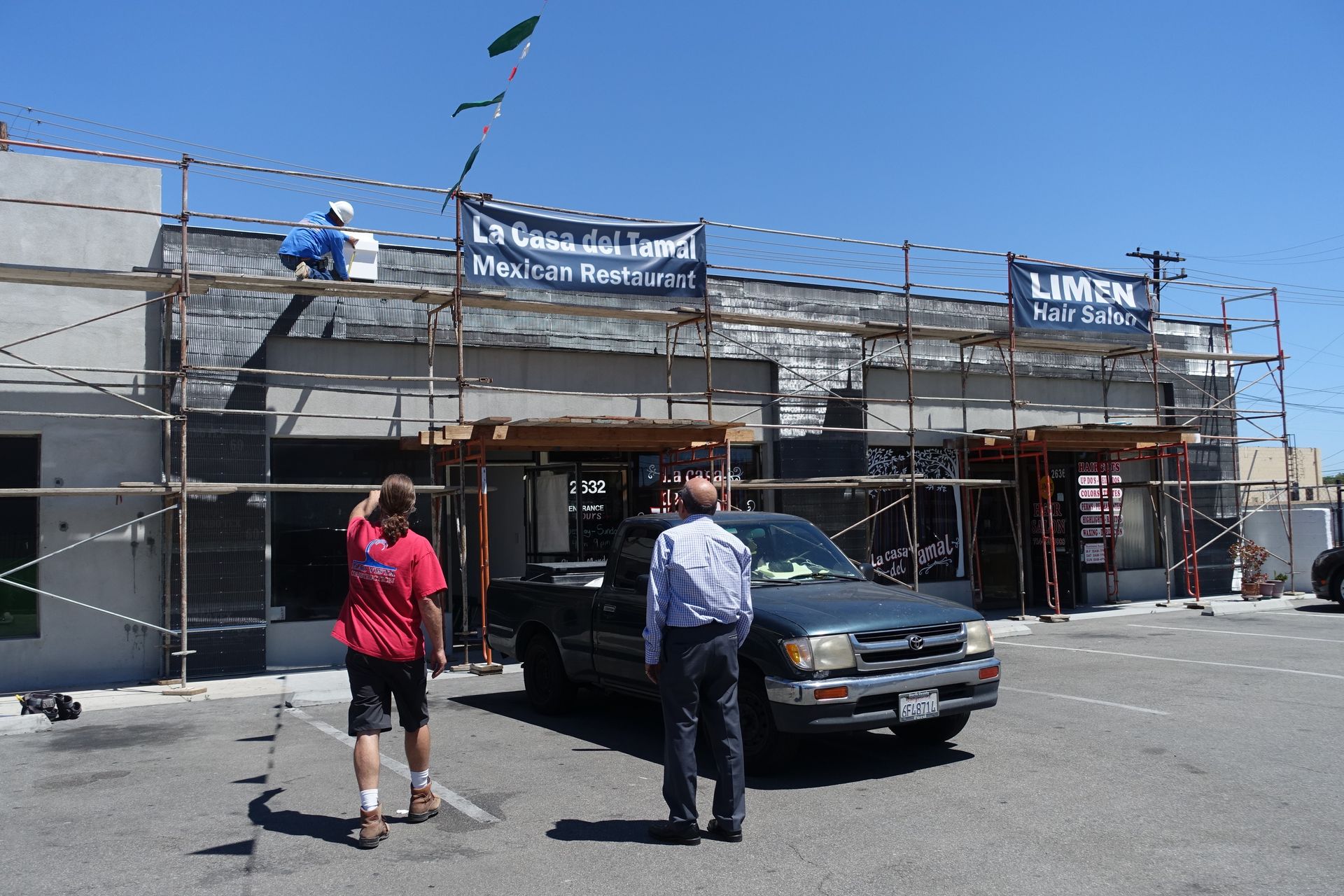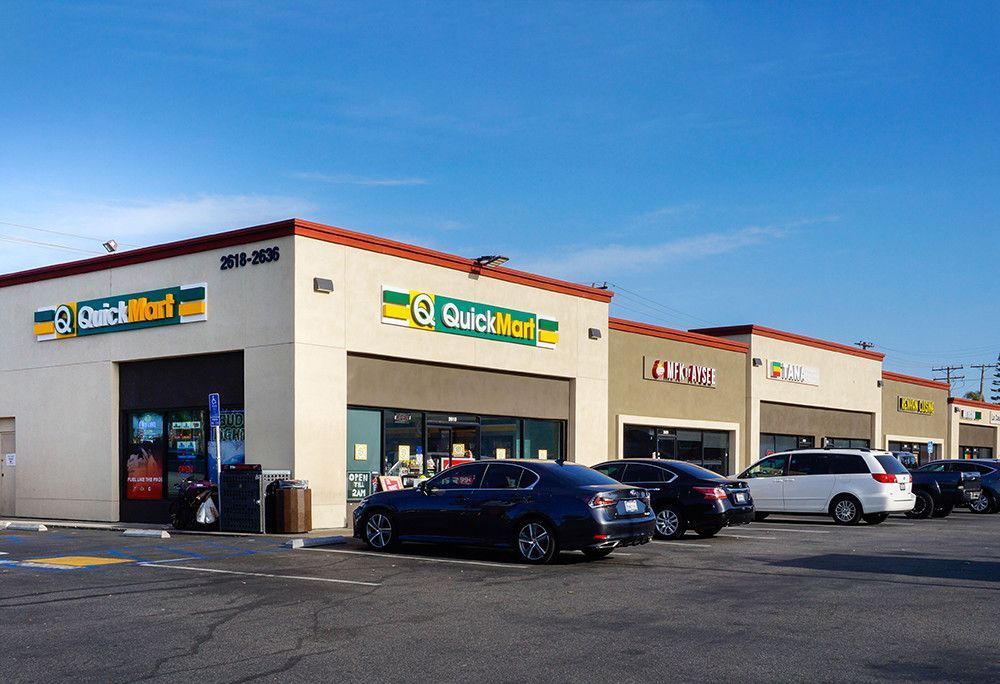Value-Add Retail Center
Anthony A. Luna • August 1, 2025
Value-Add Retail Center
Revitalizing La Palma: A Retail Center Reimagined
The La Palma Retail Center, initially struggling with outdated infrastructure and a lackluster tenant mix, represented a significant challenge and an equally significant opportunity. The goal was to not only revitalize the physical space but also to reposition La Palma as a vibrant community asset and a high-performing asset in our investment portfolio.
The transformation of the La Palma Retail Center is a captivating tale of strategic foresight, meticulous planning, and effective execution. This value-add rehab was not merely a facelift but a comprehensive reimagining of what a retail space can and should offer to its community and investors alike. Let’s dig into the specifics of how thoughtful renovations significantly uplifted the center’s value and appeal.
Initiating Change
The journey of transforming the La Palma Retail Center commenced with an insightful vision that recognized the center's inherent potential. Tasked with the comprehensive management and project oversight, our team embarked on an ambitious plan to unlock this potential through targeted enhancements. The objective was clear: elevate the center’s market position while improving profitability.
The Challenge:
The La Palma Retail Center faced several challenges at the outset:
- Aging Infrastructure: The center's outdated design and facilities were not conducive to attracting modern retailers or shoppers.
- Suboptimal Tenant Mix: A lack of variety in retail offerings failed to draw a diverse customer base.
- Community Disengagement: The center did not serve as a community hub, resulting in low visitor engagement and retention.

Execution with Precision
Our approach to revitalizing La Palma was multi-faceted, focusing on three key areas:
- Physical Upgrades: We embarked on comprehensive renovations, including updating storefronts, improving signage and lighting, and enhancing the overall aesthetic to create a welcoming atmosphere. Special attention was paid to increasing the height of the buildings and giving the façade a vibrant facelift with new color schemes.
- Tenant Mix Optimization: We strategically diversified the tenant mix to include a blend of anchor stores, local artisans, and varied dining options, aimed at attracting a broader customer base.
- Community Engagement: We transformed La Palma into a community hub by incorporating open spaces for events, children’s play areas, and social zones, fostering a sense of belonging and community pride.

Outcomes & Impact
- Capital Improvements: The project, totaling $263,533 in renovations, elevated the average rental rate from $1.12 to $1.91 per square foot, reflecting the enhanced quality and appeal of the retail space.
- Increased Property Value: The strategic renovations led to a substantial increase in the property's value, resulting in a total gain of over $2 million for our client after renovation costs.
- Optimal Occupancy: Post-renovation, La Palma achieved 100% occupancy, drawing high-quality tenants and commanding higher rental rates, which significantly increased the total property value.
- Community Revitalization: La Palma now stands as a testament to the transformative impact of strategic investment and community-focused redevelopment on retail centers.
The La Palma Retail Center's revitalization story underscores the power of visionary planning and execution in the retail sector. By focusing on enhancing the physical space, optimizing the tenant mix, and fostering community engagement, we have not only revitalized a fading retail center but also redefined its role in the community, setting a new standard for future retail renovations.
This case study demonstrates our commitment to creating value through strategic redevelopment, emphasizing our expertise in transforming challenges into opportunities for growth and community development.

More about Coastline Equity
-
Property Management Services
 Explore Our Services
Explore Our ServicesOur team will handle all your property needs, offering specialized services such as in-depth inspections, liability management, staff recruitment and training, and round-the-clock maintenance—expert support tailored to the unique requirements of your real estate assets.
-
About Us
.webp) Our Company
Our CompanyOur dedicated team transforms property management challenges into opportunities. From tenant management to streamlined rent collection and proactive maintenance.
-
Property Management Excellence
 About Our CEO
About Our CEOAs a contributing author for Forbes, Anthony A. Luna brings a wealth of expertise and knowledge in the property management industry, real estate sector, and entrepreneurship, providing insights and thought-provoking analysis on a range of topics including property management, industry innovation, and leadership. Anthony has established himself as a leading voice in the business community. Through his contributions to Forbes, Anthony is set to publish his first book, 'Property Management Excellence' in April 2025 with Forbes Books.
-
Insights
 Explore Our Blog
Explore Our BlogLearn more about Coastline Equity's property management practices & processes and how we support our clients with education and a growth mindset. Coastline Equity Property Management is your partner as you continue to learn and grow.
Property Management Made Easy
Los Angeles
Temecula
Free tools & Resources
Privacy policy
Service areas
- Aguanga Property Management
- Aliso Viejo Property Management
- Anaheim Hills Property Management
- Anaheim Property Management
- Anza Property Management
- Balboa Island Property Management
- Bellflower Property Management
- Belmont Shore Property Management
- Beverly Hills Property Management
- Bixby Knolls Property Management
- Bonsall Property Management
- Brea Property Management
- Burbank Property Management
- Carson Property Management
- Cerritos Property Management
- Costa Mesa Property Management
- Culver City Property Management
- Dana Point Property Management
- Downey Property Management
- East Costa Mesa Property Management
- El Segundo Property Management
- Fallbrook Property Management
- Fountain Valley Property Management
- French Valley Property Management
- Fullerton Property Management
- Garden Grove Property Management
- Gardena Property Management
- Glendale Property Management
- Harbor City Property Management
- Hawaiian Gardens Property Management
- Hemet Property Management
- Hermosa Beach Property Management
- Huntington Beach Property Management
- Inland Empire Property Management
- Irvine Property Management
- La Habra Property Management
- Ladera Ranch Property Management
- Laguna Beach Property Management
- Lake Elsinore Property Management
- Lakewood Property Management
- Lomita Property Management
- Long Beach Property Management
- Los Alamitos Property Management
- Manhattan Beach Property Management
- Marina del Rey Property Management
- Menifee Property Management
- Mission Viejo Property Management
- Murrieta Hot Springs Property Management
- Naples Property Management
- Newport Beach Property Management
- North Tustin Property Management
- Old Torrance Property Management
- Orange County Property Management
- Palos Verdes Drive East Property Management
- Paramount Property Management
- Pasadena Property Management
- Perris Property Management
- Placentia Property Management
- Rancho Palos Verdes Property Management
- Redondo Beach Property Management
- Riverside County Property Management
- Rolling Hills Property Management
- Rossmoor Property Management
- San Bernardino County Property Management
- Santa Ana Property Management
- Seal Beach Property Management
- Signal Hill Property Management
- Silverlake Property Management
- Temecula Property Management
- Torrance Property Management
- Tustin Property Management
- Venice Property Management
- West Hollywood Property Management
- Westminster Property Management
- Whittier Property Management
- Wildomar Property Management
- Wilmington Property Management
- Winchester Property Management
- Yorba Linda Property Management
- Property Management Near Me
- San Pedro Property Management
- Los Angeles Property Management